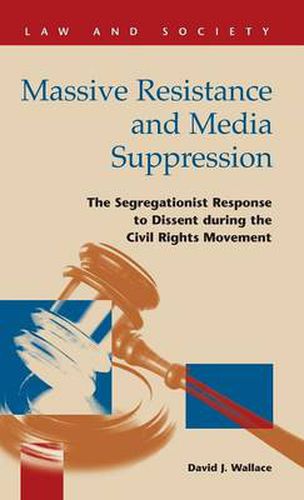Readings Newsletter
Become a Readings Member to make your shopping experience even easier.
Sign in or sign up for free!
You’re not far away from qualifying for FREE standard shipping within Australia
You’ve qualified for FREE standard shipping within Australia
The cart is loading…






This title is printed to order. This book may have been self-published. If so, we cannot guarantee the quality of the content. In the main most books will have gone through the editing process however some may not. We therefore suggest that you be aware of this before ordering this book. If in doubt check either the author or publisher’s details as we are unable to accept any returns unless they are faulty. Please contact us if you have any questions.
Wallace explores the role and methods of media suppression in the South during the civil rights movement and the southern massive resistance to integration. Segregationists understood the importance of public opinion to defending their social system, and, as a result, desperately fought to influence how the civil rights movement and segregation were defined for the nation. However, when certain national news coverage and the voices of a minority of southern journalists challenged the growing massive resistance extremism and the arguments used to preserve the southern way of life, segregationists responded with organized attempts to silence criticism, dissent and public debate within the press.
$9.00 standard shipping within Australia
FREE standard shipping within Australia for orders over $100.00
Express & International shipping calculated at checkout
This title is printed to order. This book may have been self-published. If so, we cannot guarantee the quality of the content. In the main most books will have gone through the editing process however some may not. We therefore suggest that you be aware of this before ordering this book. If in doubt check either the author or publisher’s details as we are unable to accept any returns unless they are faulty. Please contact us if you have any questions.
Wallace explores the role and methods of media suppression in the South during the civil rights movement and the southern massive resistance to integration. Segregationists understood the importance of public opinion to defending their social system, and, as a result, desperately fought to influence how the civil rights movement and segregation were defined for the nation. However, when certain national news coverage and the voices of a minority of southern journalists challenged the growing massive resistance extremism and the arguments used to preserve the southern way of life, segregationists responded with organized attempts to silence criticism, dissent and public debate within the press.